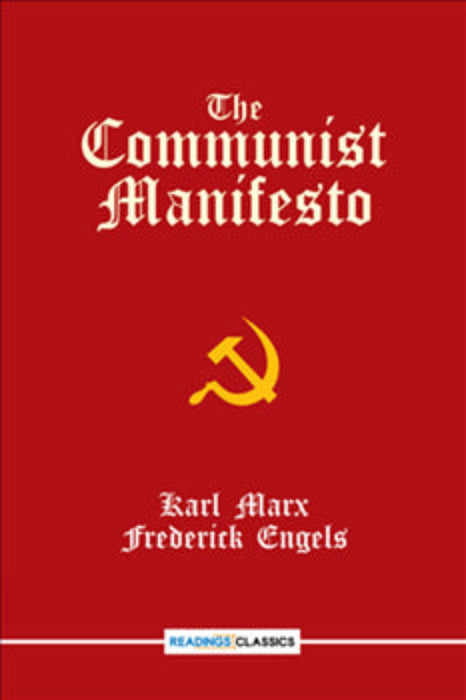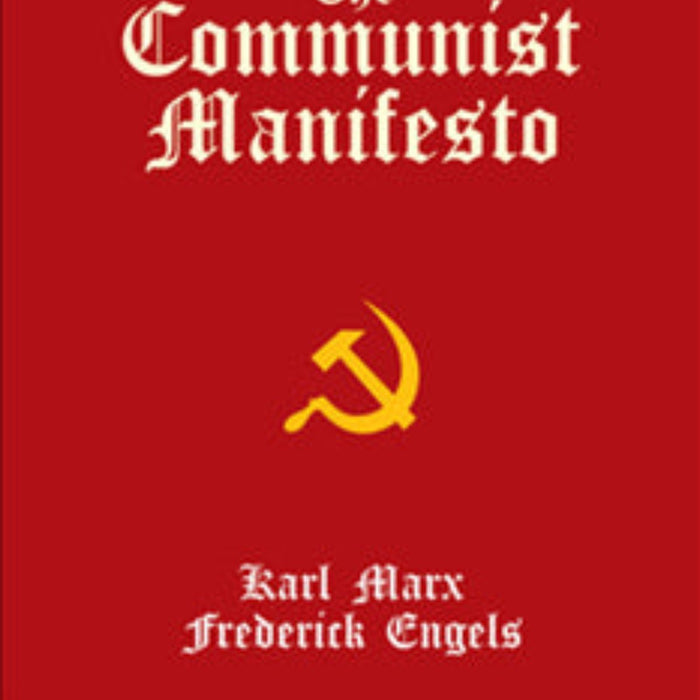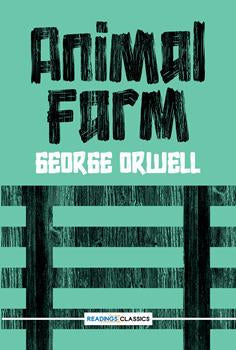The Communist Manifesto (Readings Classics) by Karl Marx (Author)
- Publisher: READING CLASSICS
- Availability: In Stock
- SKU: 30285
- ISBN: 9789699903175
- Number of Pages: 58
Rs.150.00
Rs.199.00
Tags: 19th Century Literature , best books , Best Price , best prices , best shop , bookshop , bookshop online , bookshopPakistan , buy online books , Class Conflict , Class Struggle , Classless Society , Collective Ownership , Communism , Critical Theory. , Critique of Capitalism , Economic Systems , Equality , Frederick Engels , good books , good booksonline , Historical Document , Historical Materialism , Ideological Texts , Ideology , Karl Marx , Labor Movement , Leftist Thought , Legacy of Marxism , Literature and Politics , Manifesto , Marxism , Modern History , online books store , Online Bookshop , Online Bookshop Pakistan , online shopping , Online Shopping Pakistan , OnlineShoppingPakistan , PakistanBookshop , PakistanOnlineShopping , Philosophy of History , Political Classics , Political Philosophy , Political Theory , price cut , price-friendly Comprehensive , Radical Politics , Reading Classics , ReasonablePrice , reduced price , Revolutionary Change , Revolutionary Ideology , Shopping , ShopSmartPakistan , Socialism , Socialist Literature , The Communist Manifesto , Theory and Practice
The Communist Manifesto (Readings Classics) by Karl Marx and Frederick Engels is a foundational text in the study of political theory and socialism. Written in 1848, this influential pamphlet outlines the principles of communism and critiques the socio-economic conditions of the time. Marx and Engels argue that history is marked by class struggles and that the capitalist system, which exploits the working class (the proletariat) for the benefit of the ruling class (the bourgeoisie), is inherently unstable and unsustainable. The manifesto calls for the unification of workers worldwide to overthrow capitalism and establish a classless society. Its compelling arguments and revolutionary vision have inspired countless movements and continue to shape political discourse today.
Keypoints:
-
Historical Materialism
The text introduces the concept of historical materialism, positing that material conditions and economic factors drive societal change and development. -
Class Struggle
Central to the manifesto is the idea that all of history is characterized by the struggle between different social classes, primarily the bourgeoisie and the proletariat. -
Critique of Capitalism
Marx and Engels provide a thorough critique of capitalism, highlighting its tendency to create inequality, exploitation, and alienation among workers. -
Call for Unity
The manifesto urges workers of the world to unite, emphasizing solidarity among the proletariat as essential for revolutionary change. -
Vision of Communism
It outlines the authors’ vision for a communist society, where private property is abolished, and the means of production are communally owned. -
Impact on Political Movements
The manifesto has significantly influenced socialist and communist movements worldwide, becoming a rallying point for those advocating for workers' rights and social justice. -
Accessibility
Written in a clear and persuasive style, the manifesto makes complex ideas accessible, appealing to a broad audience beyond intellectual circles. -
Internationalism
The authors emphasize the international character of the working-class struggle, arguing that oppression transcends national borders. -
Influence on Future Thought
The ideas presented have shaped various political ideologies and movements, impacting not only socialism but also liberalism, anarchism, and social democracy. -
Legacy
As one of the most influential political texts in history, The Communist Manifesto continues to be studied and debated, reflecting its enduring relevance in discussions of class, power, and economic systems.
Conclusion:
The Communist Manifesto by Karl Marx and Frederick Engels is a seminal work that articulates the grievances of the working class and advocates for revolutionary change against capitalism. Its powerful critique of social and economic inequalities has inspired generations of activists and thinkers, making it a crucial text for understanding modern political ideologies and movements. Through its compelling arguments for solidarity and class struggle, the manifesto remains a vital part of the discourse surrounding social justice and equality.
════ ⋆★⋆ ═══
Writer ✤ Karl Marx (Author), Frederick Engels (Author)
Publishers ✤ READING CLASSICS





















